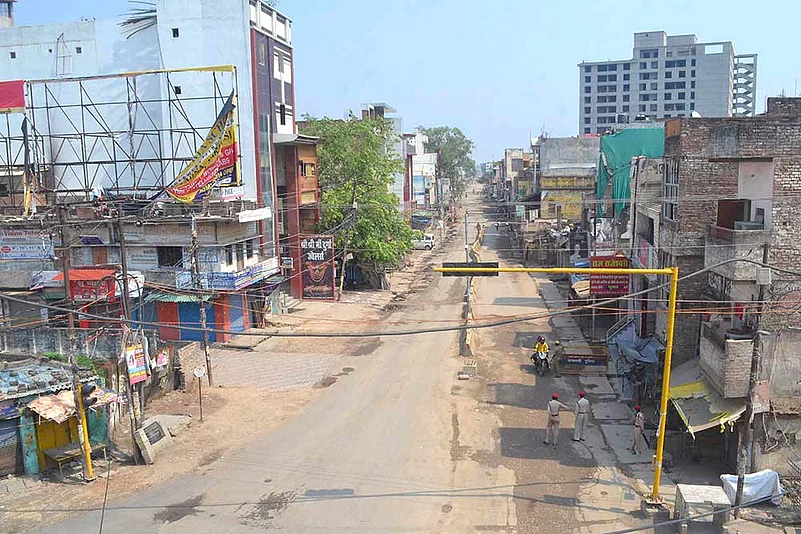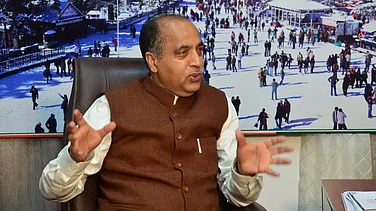The Centre on Friday decided to extend the ongoing lockdown by two weeks effective from May 4. In an order, the Union Home Ministry issued guidelines to regulate different activities in this period, based on the risk profiling of the districts of the country into red (hotspot), green and orange zones.
Under the new guidelines, a limited number of activities will remain prohibited throughout the country, irrespective of the Zone. These include travel by air, rail, metro and inter-State movement by road; running of schools, colleges, and other educational and training/ coaching institutions; hospitality services, including hotels and restaurants; places of large public gatherings, such as cinema halls, malls, gymnasiums, sports complexes etc; social, political, cultural and other kinds of gatherings; and, religious places/ places of worship for public. However, movement of persons by air, rail and road is allowed for select purposes, and for purposes as permitted by MHA.
Movement of individuals, for all non-essential activities, shall remain strictly prohibited between 7 pm to 7 am.
In all zones, persons above 65 years of age, persons with co-morbidities, pregnant women, and children below the age of 10 years, shall stay at home, except for meeting essential requirements and for health purposes.
Out-Patient Departments (OPDs) and Medical clinics shall be permitted to operate in Red, Orange and Green Zones, with social distancing norms and other safety precautions; however, these will not be permitted within the Containment Zones.
Here’s a list of activities that will/will not be allowed in the three zones
Red Zones
In the Red Zones, outside the Containment Zones, certain activities are prohibited in addition to those prohibited throughout the country. These are: plying of cycle rickshaws and auto rickshaws; running of taxis and cab aggregators; intra-district and inter-district plying of buses; and, barber shops, spas and saloons.
Movement of individuals and vehicles is allowed only for permitted activities, with a maximum of 2 persons (besides the driver) in four-wheeler vehicles, and with no pillion rider in the case of two-wheelers.
Industrial establishments in urban areas, viz., Special Economic Zones (SEZs), Export Oriented Units (EOUs), industrial estates and industrial townships with access control have been permitted. The other industrial activities permitted are manufacturing units of essential goods, including drugs, pharmaceuticals, medical devices, their raw material and intermediates; production units, which require continuous process, and their supply chain; manufacturing of IT hardware; jute industry with staggered shifts and social distancing; and, manufacturing units of packaging material.
Construction activities in urban areas have been limited to in-situ construction (where workers are available on site and no workers are required to be brought in from outside) and construction of renewable energy projects.
Shops in urban areas, for non-essential goods, are not allowed in malls, markets and market complexes. However, all standalone (single) shops, neighborhood (colony) shops and shops in residential complexes are permitted to remain open in urban areas, without any distinction of essential and non-essential.
E-Commerce activities are permitted only in respect of essential goods. Private offices can operate with upto 33% strength as per requirement, with the remaining persons working from home.
All Government offices shall function with senior officers of the level of Deputy Secretary and above at full strength, and the remaining staff attending upto 33% as per requirement. However, Defense and Security services, Health and Family Welfare, Police, Prisons, Home Guards, Civil Defence, Fire and Emergency Services, Disaster management and related services, National Informatics Centre (NIC), Customs, Food Corporation of India (FCI), National Cadet Corps (NCC), Nehru Yuvak Kendra (NYK) and Municipal services shall function without any restrictions; delivery of public services shall be ensured and necessary staff will be deployed for such purpose.
All industrial and construction activities in rural areas, including MNREGA works, food-processing units and brick-kilns are permitted; besides, in rural areas, without distinction to the nature of goods, all shops, except in shopping malls are permitted.
All agriculture activities, e.g., sowing, harvesting, procurement and marketing operations in the agricultural supply chain are permitted. Animal husbandry activities are fully permitted, including inland and marine fisheries. All plantation activities are allowed, including their processing and marketing.
All health services (including AYUSH) are to remain functional, including transport of medical personnel and patients through air ambulances. A large part of the financial sector remains open, which includes banks, non-banking finance companies (NBFCs), insurance and capital market activities, and credit co-operative societies. Operation of homes for children, senior citizens, destitutes, women and widows etc.; and operation of Anganwadis has also been permitted.
Public utilities, e.g., utilities in power, water, sanitation, waste management, telecommunications and internet will remain open, and courier and postal services will be allowed to operate.
Most of the commercial and private establishments have been allowed in the Red Zones. These include print and electronic media, IT and IT enabled services, data and call centres, cold storage and warehousing services, private security and facility management services, and services provided by self-employed persons, except for barbers etc.,
Manufacturing units of essential goods, including drugs, pharmaceuticals, medical devices, their raw material and intermediates; production units, which require continuous process, and their supply chain; Jute industry with staggered shifts and social distancing; and manufacturing of IT hardware and manufacturing units of packaging material will continue to be permitted.
Orange Zones
In addition to activities permitted in Red Zone, taxis and cab aggregators will be permitted with 1 driver and 1 passenger only.
Inter-district movement of individuals and vehicles will be allowed for permitted activities only. Four-wheeler vehicles will have maximum two passengers besides the driver and pillion riding will be allowed on two-wheelers.
Green Zones
All activities are permitted except the limited number of activities which are prohibited throughout the country, irrespective of the Zone.
Buses can operate with upto 50% seating capacity and bus depots can operate with upto 50% capacity.


























